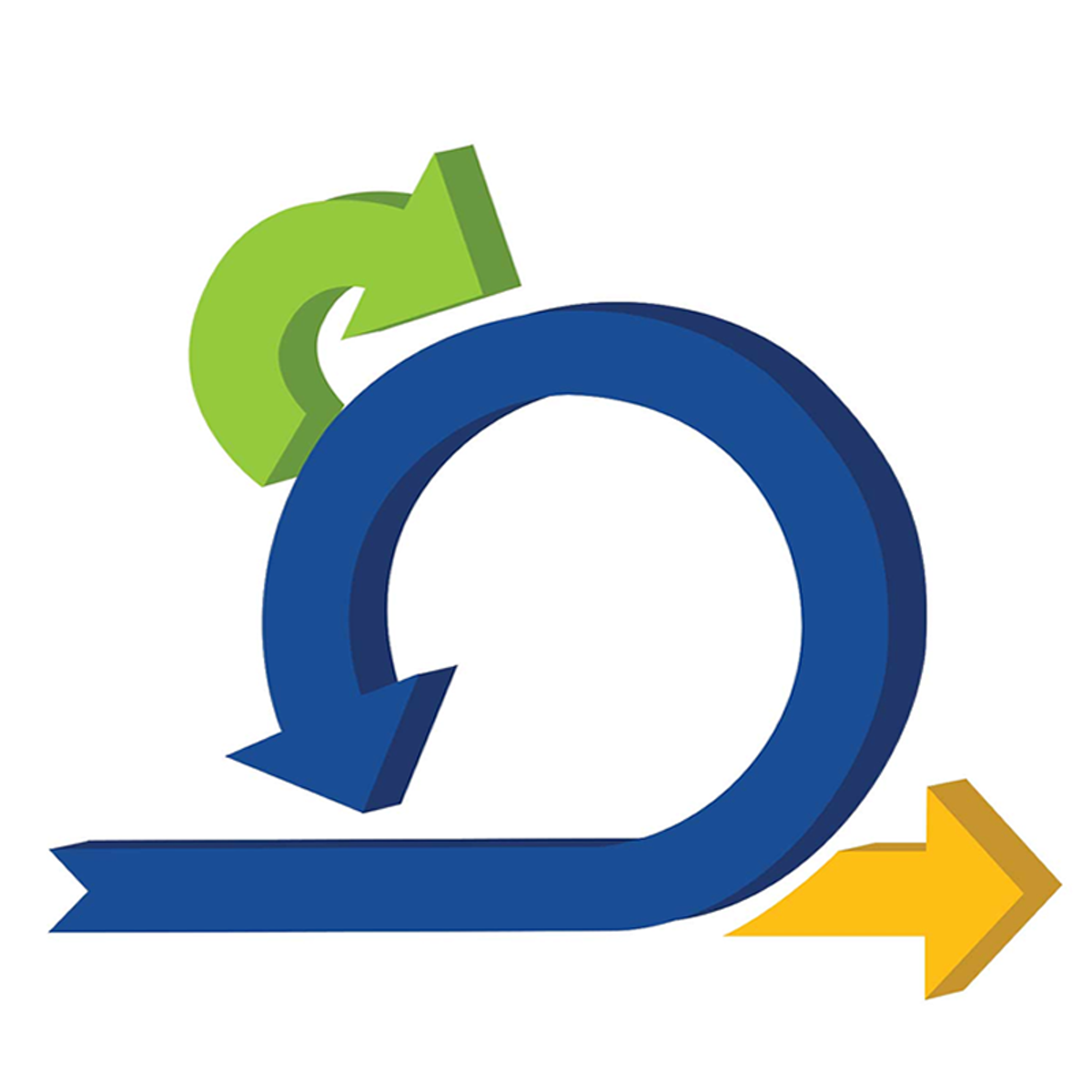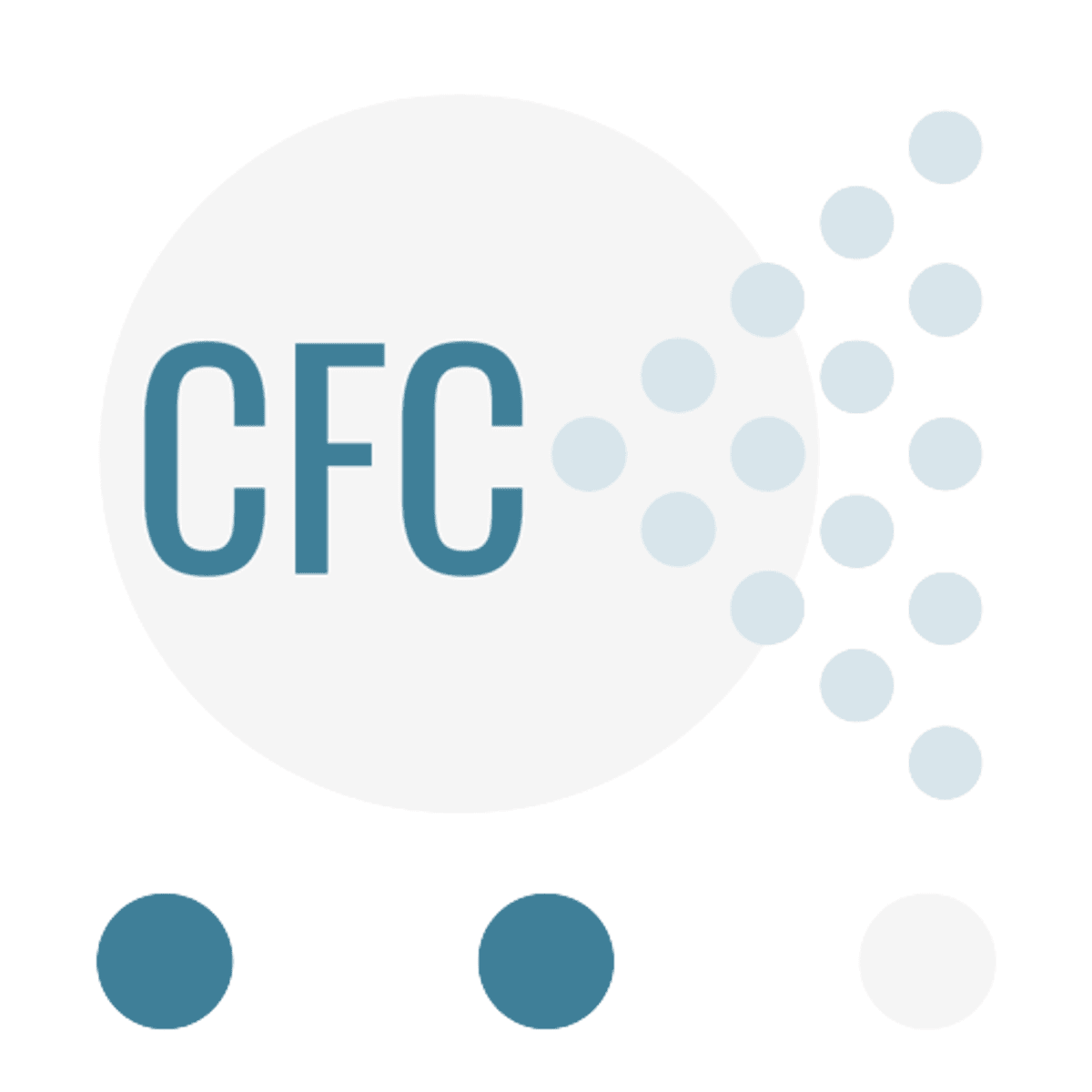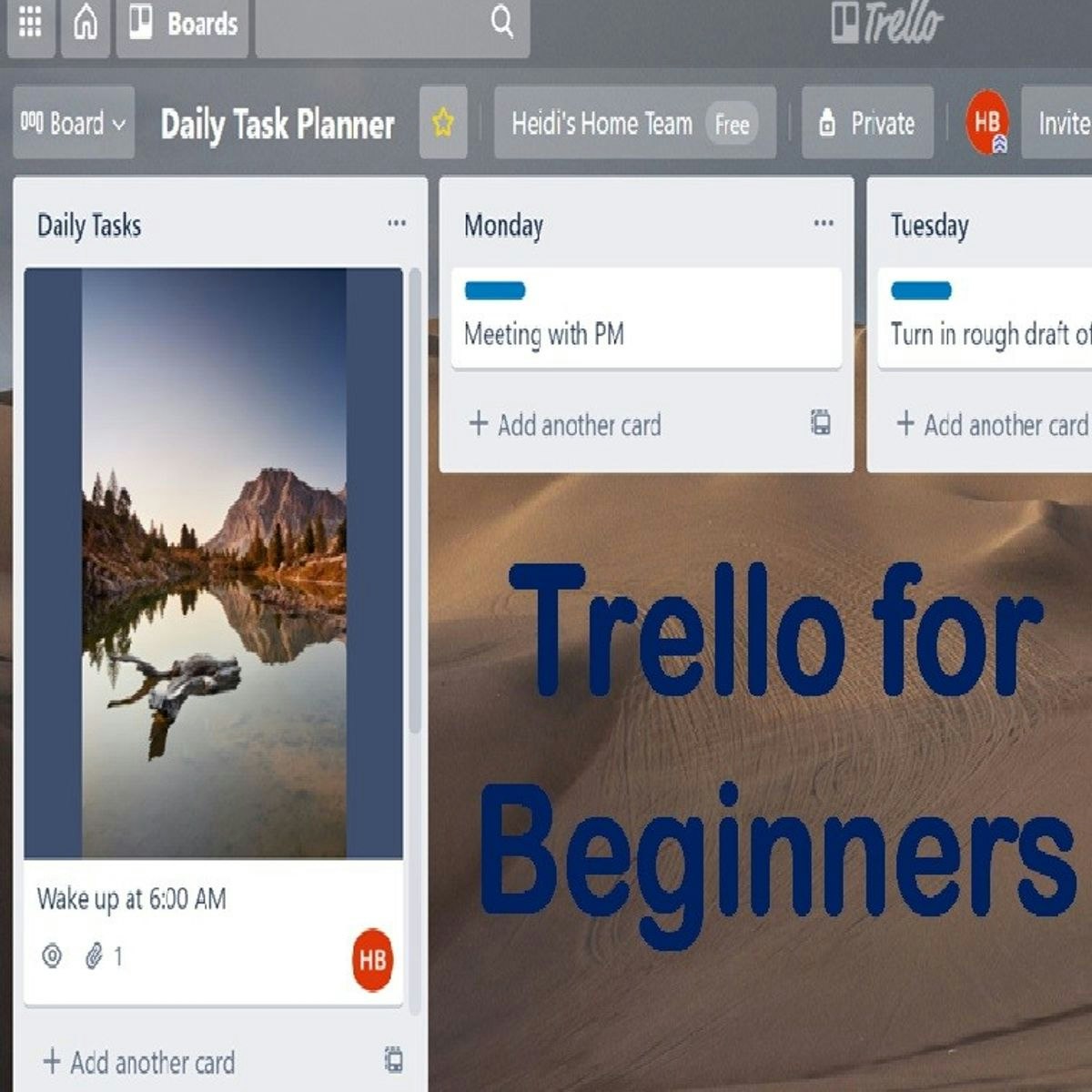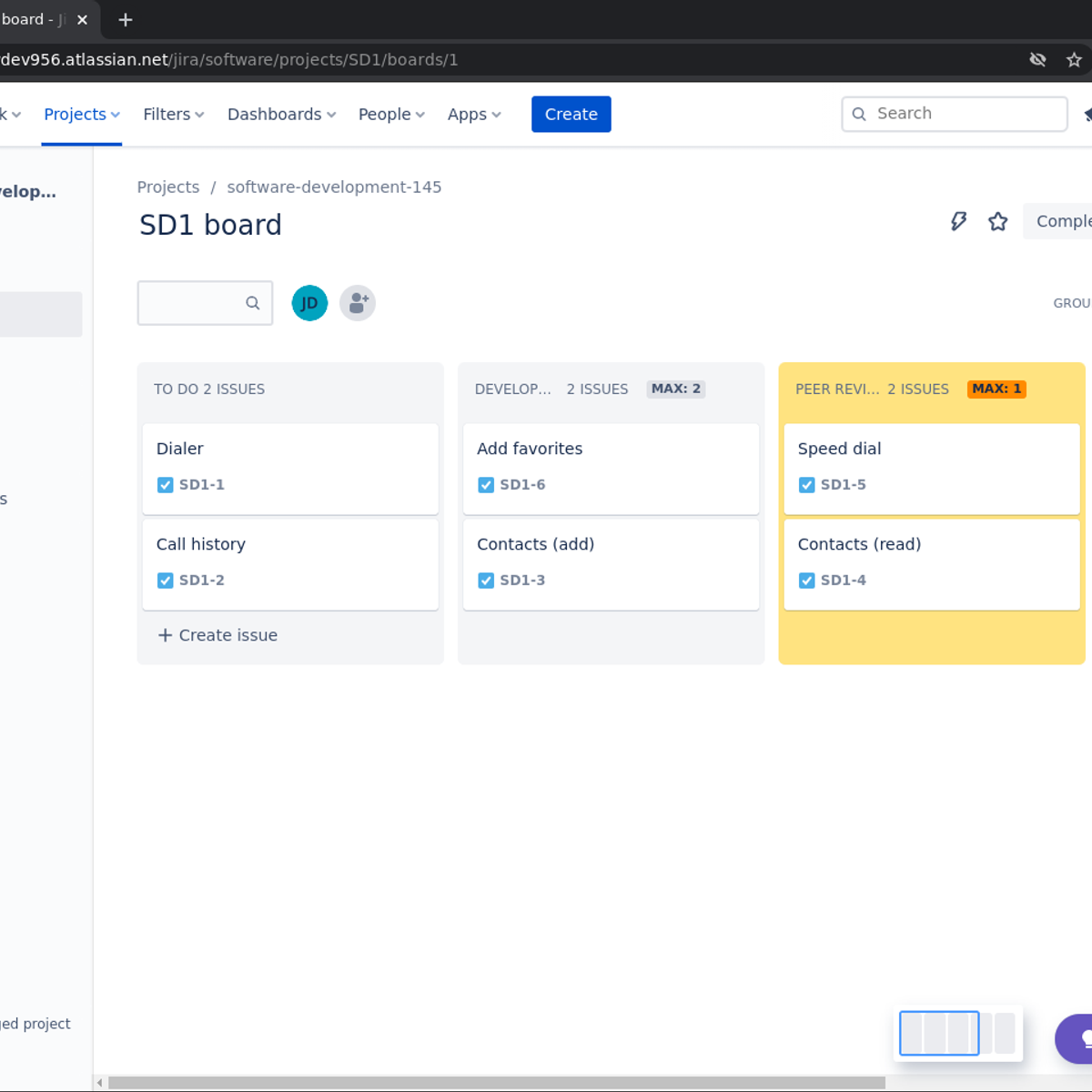Scrum Master
Navigating the World of the Scrum Master: A Comprehensive Career Guide
The Scrum Master role is a key position within teams practicing Agile methodologies, particularly the Scrum framework. At its core, a Scrum Master acts as a facilitator and coach for a Scrum team, helping them understand and adhere to Scrum theory, practices, rules, and values. They are servant-leaders, focused on empowering the team to self-organize, collaborate effectively, and continuously improve their processes to deliver high-value products.
Working as a Scrum Master can be highly engaging. You'll find yourself at the intersection of people, processes, and technology, constantly working to optimize team dynamics and remove obstacles. It's a role that demands strong communication, empathy, and problem-solving skills, offering the reward of seeing teams grow, overcome challenges, and achieve their goals together. For those passionate about teamwork, efficiency, and fostering a positive work environment, this career path holds significant appeal.
Introduction to the Scrum Master Role
Understanding the Scrum Master role begins with grasping its fundamental purpose within the Scrum framework. It's a role dedicated to guiding and supporting a team, ensuring they can work effectively and deliver value incrementally and iteratively.
What is a Scrum Master?
A Scrum Master is the guardian of the Scrum framework within a team and the broader organization. Their primary purpose isn't to manage the team or the project in a traditional sense, but rather to ensure the team understands and correctly applies Scrum principles and practices. They act as a coach, facilitator, impediment remover, and process authority for the team.
Think of them as the team's enabler. They don't dictate *what* the team builds (that's the Product Owner's focus) or *how* the team builds it (that's the Development Team's domain). Instead, the Scrum Master focuses on *how well* the team works together using the Scrum framework, helping them become more effective and efficient over time.
This involves teaching Scrum, facilitating key events like Sprint Planning and Retrospectives, removing obstacles that block the team's progress, and protecting the team from external interference or distractions. Their goal is to foster an environment where the team can be as productive and successful as possible.
These courses provide a solid introduction to the role and its foundational concepts.
Scrum Master vs. Project Manager vs. Product Owner
It's common for those new to Agile to confuse the Scrum Master role with similar-sounding titles like Project Manager or Product Owner. While there can be overlaps, their core functions and focuses differ significantly within the Scrum framework.
A Project Manager (in a traditional sense) often focuses on planning, scope, budget, risk, and resource allocation for an entire project, often with a defined start and end. They typically direct the team's work. In many pure Scrum environments, the traditional Project Manager role is distributed among the Scrum Master, Product Owner, and Development Team.
The Product Owner is responsible for maximizing the value of the product resulting from the work of the Development Team. They own and manage the Product Backlog, define User Stories, prioritize work based on business value, and represent the stakeholders' interests. Their focus is on the "what" – what product features should be built.
The Scrum Master, as discussed, focuses on the Scrum process itself – the "how" of working effectively within the framework. They serve the Product Owner by helping them manage the backlog effectively and serve the Development Team by removing impediments and facilitating events. They ensure the team adheres to Scrum principles and continuously improves.
The Role within Agile and Scrum Frameworks
The Scrum Master operates within the broader context of Agile principles and specifically within the Scrum framework. Agile is a set of values and principles emphasizing iterative development, collaboration, customer feedback, and responding to change. Scrum is one specific framework for implementing Agile principles.
Imagine Agile as the overall philosophy (like "healthy living") and Scrum as a specific diet and exercise plan (like "Mediterranean diet plus daily jogging"). The Scrum Master is like the personal trainer and nutritionist ensuring the team follows the plan correctly and gets the most benefit from it.
They ensure that the team lives the Agile values and follows Scrum rules. This includes facilitating Scrum events (Daily Scrum, Sprint Planning, Sprint Review, Sprint Retrospective), helping the team create valuable increments of work each Sprint, and coaching the organization in its Scrum adoption. Their success is measured by the team's increased understanding and application of Scrum, leading to better performance and value delivery.
These courses offer a foundational understanding of Agile and Scrum.
Industries Employing Scrum Masters
While Scrum originated in software development, its principles of iterative progress, adaptability, and team collaboration have proven valuable across many sectors. Today, Scrum Masters are employed in a wide range of industries beyond technology.
Information Technology and Software Development remain the largest employers, using Scrum to manage complex software projects. However, fields like Finance, Banking, Insurance, Healthcare, Marketing, Education, Government, Manufacturing, and even Construction are increasingly adopting Agile practices and hiring Scrum Masters.
Any industry facing complex problems, rapidly changing requirements, or the need for faster delivery cycles can potentially benefit from Scrum. This expansion creates diverse opportunities for individuals interested in the Scrum Master role, allowing them to apply their skills in various business contexts.
Core Responsibilities of a Scrum Master
The day-to-day work of a Scrum Master revolves around enabling the team and upholding the Scrum framework. Their responsibilities are diverse, focusing on facilitation, coaching, and removing obstacles.
Facilitating Scrum Ceremonies
A key responsibility is facilitating the core Scrum events, also known as ceremonies. These events provide the structure for the Scrum process. The Scrum Master ensures these meetings happen, are productive, and stay within their time limits (timeboxing).
This includes facilitating the Daily Scrum (a short daily sync-up for the Development Team), Sprint Planning (where the team plans the work for the upcoming Sprint), the Sprint Review (where the team demonstrates the completed work to stakeholders), and the Sprint Retrospective (where the team reflects on its process and identifies improvements).
Facilitation doesn't mean running the meeting like a traditional manager; it means creating an environment where the team can effectively collaborate, make decisions, and achieve the meeting's objectives according to Scrum principles. This requires skill in guiding conversations, ensuring participation, and keeping the focus aligned with the purpose of each event.
These courses delve into the practical aspects of Scrum events and facilitation.
Removing Impediments
One of the most critical functions of a Scrum Master is identifying and removing impediments – anything that hinders the Development Team's progress. Impediments can range from technical issues (e.g., lack of necessary tools, environment problems) to organizational obstacles (e.g., bureaucratic processes, dependencies on other teams, lack of clarity from stakeholders).
The Scrum Master actively listens during Daily Scrums and observes the team's work to spot blockers. Once identified, they take ownership of resolving these issues, escalating them when necessary, and working with individuals or groups outside the team to clear the path.
This requires strong problem-solving skills, persistence, and the ability to navigate organizational structures. Effectively removing impediments allows the team to maintain focus and momentum, directly contributing to their ability to deliver value each Sprint.
Shielding the Team from Distractions
Scrum teams thrive when they can focus on their Sprint Goal without constant interruptions or conflicting priorities. The Scrum Master acts as a buffer, protecting the team from external distractions and interference that could derail their progress.
This might involve managing communication channels, deflecting requests that fall outside the agreed-upon Sprint scope, or coaching stakeholders on how to interact effectively with the team without disrupting their flow. They help ensure that the team can concentrate on the work committed during Sprint Planning.
This protective role is crucial for maintaining team productivity and morale. It allows the Development Team to self-organize around their work and maintain a sustainable pace, which is a core tenet of Agile development.
Tracking and Improving Team Metrics
While Scrum emphasizes delivering working software over comprehensive documentation, metrics play a role in understanding team performance and identifying areas for improvement. The Scrum Master often helps the team track relevant metrics, but importantly, uses them as tools for insight, not judgment.
Common metrics include Velocity (the amount of work a team typically completes in a Sprint), Cycle Time (how long it takes for work to move from start to finish), and Burn-down/Burn-up charts (visualizing progress towards the Sprint Goal or release). These metrics can help the team forecast future work, identify bottlenecks, and gauge the impact of process changes.
The Scrum Master coaches the team on how to interpret these metrics constructively during Retrospectives, focusing on trends and patterns rather than assigning blame. The goal is to use data to inform continuous improvement efforts and make the team's process more transparent and predictable.
Promoting Agile Principles and Continuous Improvement
Beyond the specific Scrum framework, the Scrum Master champions the underlying Agile principles and fosters a culture of continuous improvement (Kaizen) within the team and the organization.
They coach team members, Product Owners, and stakeholders on Agile values like collaboration, transparency, inspection, and adaptation. They encourage experimentation, learning from failures, and constantly seeking ways to enhance processes, practices, and interactions.
This involves facilitating Retrospectives effectively, helping the team identify actionable improvements, and supporting them in implementing those changes. It also extends to coaching the wider organization on how to best support and interact with Scrum teams, helping to build a truly agile environment.
These courses explore Agile principles and team dynamics.
Essential Skills and Competencies
Excelling as a Scrum Master requires a blend of interpersonal abilities (soft skills) and practical knowledge (technical skills), alongside a commitment to the core philosophies of Agile and Scrum.
Soft Skills: The Human Element
Soft skills are paramount for a Scrum Master, as much of the role involves interacting with, coaching, and supporting people. Key soft skills include:
- Communication: Clearly articulating ideas, actively listening, providing constructive feedback, and tailoring communication to different audiences (team members, stakeholders, management).
- Facilitation: Guiding meetings and discussions effectively, ensuring participation, managing group dynamics, and helping the team reach consensus or make decisions.
- Conflict Resolution: Identifying and addressing conflicts within the team or between the team and external parties constructively and impartially.
- Coaching and Mentoring: Helping individuals and the team understand and apply Agile/Scrum principles, guiding them towards self-organization and continuous improvement without dictating solutions.
- Servant Leadership: Focusing on the needs of the team members and the organization first, empowering them, removing obstacles, and fostering an environment of trust and collaboration.
- Empathy: Understanding and considering the perspectives and feelings of team members and stakeholders.
These skills enable the Scrum Master to build trust, foster collaboration, and navigate the human complexities inherent in teamwork.
Technical Skills: Tools and Analysis
While deep technical expertise in the team's specific domain (e.g., coding, testing) isn't always required, Scrum Masters benefit from a certain level of technical understanding and proficiency with relevant tools.
Familiarity with Agile Project Management Tools is crucial. Tools like Jira, Trello, Azure DevOps Boards, or similar platforms are commonly used to manage backlogs, track Sprint progress, and visualize workflow. Understanding how these tools work and how to configure them effectively supports the team's process.
An understanding of Metrics Analysis is also helpful. Being able to guide the team in collecting, interpreting, and using metrics like velocity, cycle time, and lead time helps in identifying trends and opportunities for improvement. This doesn't necessarily mean being a data scientist, but rather understanding how these metrics relate to the team's process and goals.
A general understanding of the software development lifecycle or the specific workflow of the team's industry can also be beneficial for identifying and removing impediments effectively.
Certifications: Demonstrating Knowledge
Certifications are a common way for individuals to demonstrate foundational knowledge of Scrum principles and the Scrum Master role. While not always a strict requirement for employment, they are often preferred or recommended by employers.
Several organizations offer well-recognized Scrum Master certifications. Some popular ones include:
- Certified ScrumMaster (CSM) from Scrum Alliance.
- Professional Scrum Master (PSM) from Scrum.org.
- SAFe® Scrum Master (SSM) for environments using the Scaled Agile Framework.
These certifications typically involve attending a training course and passing an exam. Advanced certifications (like A-CSM, PSM II, etc.) are also available for experienced practitioners seeking to deepen their expertise. It's important to research different certifications to understand their focus, prerequisites, and industry recognition.
Many online courses focus specifically on preparing for these certification exams.
Adaptability to Organizational Maturity
Organizations adopt Agile and Scrum at different paces and with varying levels of understanding. A key competency for a Scrum Master is the ability to adapt their approach based on the organization's Agile maturity level.
In a highly mature organization, the Scrum Master might focus more on advanced coaching, optimizing flow, and tackling complex systemic impediments. In organizations new to Agile, the role might involve more foundational teaching, basic facilitation, setting up initial processes, and addressing resistance to change.
This requires situational awareness, flexibility, and patience. The Scrum Master needs to meet the team and the organization where they are and guide them effectively on their Agile journey, recognizing that the path and challenges will differ based on context.
Formal Education Pathways
While a specific "Scrum Master degree" doesn't exist, certain formal education backgrounds can provide a strong foundation for entering and succeeding in the role. However, practical experience and certifications often weigh heavily in this field.
Relevant Academic Degrees
Individuals often enter the Scrum Master field from diverse educational backgrounds. Degrees in Computer Science or related fields provide technical context, especially helpful in software development environments. Understanding software development lifecycles, technical challenges, and team dynamics can be advantageous.
Degrees in Business Administration, Management, or Organizational Psychology can also be highly relevant. These programs often cover topics like team dynamics, leadership, communication, change management, and process improvement, all central to the Scrum Master role.
Ultimately, while a relevant degree can be beneficial, it's not typically a strict prerequisite. Many successful Scrum Masters transition from roles like software development, quality assurance, business analysis, or project management, leveraging their existing industry knowledge and developing Scrum-specific skills through training and experience.
Agile Training in University Curricula
Universities are increasingly recognizing the importance of Agile methodologies in the modern workplace. Some Computer Science, Software Engineering, and Business programs are integrating Agile principles and Scrum framework education into their curricula.
This might take the form of dedicated courses on Agile Project Management, modules within software engineering classes, or project-based learning experiences where students practice Scrum. Exposure to Agile concepts during formal education can give graduates a head start in understanding the frameworks used in many organizations.
However, the depth and practical application covered in university courses can vary. Students interested in this field should investigate specific program offerings and consider supplementing their formal education with specialized Agile training or certifications.
Certifications vs. Formal Education
In the Scrum Master field, there's often a debate about the relative importance of formal degrees versus professional certifications. While a degree provides broad foundational knowledge, certifications demonstrate specific expertise in the Scrum framework and Agile principles.
Many employers value certifications like CSM or PSM highly, sometimes even requiring them, as they signal a baseline understanding of the role and its practices. They offer focused, practical training directly applicable to the Scrum Master position.
However, a formal education can provide deeper theoretical understanding, critical thinking skills, and broader business or technical context that certifications alone may not cover. The ideal combination often involves leveraging the foundational knowledge from a degree and supplementing it with targeted certifications and, most importantly, practical experience.
Potential PhD Research Areas
For those interested in academic research related to Scrum and Agile methodologies, several areas offer potential for PhD study. Research often focuses on understanding, improving, and scaling Agile practices.
Topics might include:
- Agile Scalability: Investigating frameworks (like SAFe, LeSS, Nexus) and practices for applying Agile effectively across large organizations or multiple teams.
- Team Dynamics in Agile Environments: Studying factors influencing collaboration, communication, self-organization, and performance in Scrum teams.
- Impact of Agile Coaching: Measuring the effectiveness of Scrum Masters and Agile Coaches on team performance and organizational agility.
- Agile Metrics and Measurement: Developing and validating effective ways to measure Agile success beyond traditional project metrics.
- Human Factors in Agile Transformation: Researching organizational change management, resistance, and cultural factors influencing Agile adoption.
Such research contributes to the evolution of Agile practices and provides deeper insights for practitioners.
Online and Self-Directed Learning
The path to becoming a Scrum Master is highly accessible through online education and self-directed learning. This route offers flexibility and allows individuals to acquire necessary skills and certifications without necessarily pursuing a traditional degree.
Feasibility of Transitioning via Online Education
Transitioning into a Scrum Master role solely through online education is entirely feasible, especially when combined with relevant prior experience (e.g., in IT, project coordination, or team leadership). Online platforms offer a vast array of courses covering Agile principles, the Scrum framework, specific Scrum Master responsibilities, and preparation for certifications.
Learners can study foundational concepts, delve into specific techniques like facilitating retrospectives or managing backlogs, and prepare for certification exams at their own pace. OpenCourser aggregates thousands of these courses, making it easy to find options that fit your learning style and budget. Many courses offer hands-on exercises or simulations to build practical understanding.
Successfully transitioning often involves strategically selecting courses, actively engaging with the material, seeking opportunities to apply learning, and potentially obtaining a recognized certification to validate knowledge.
These courses cover Agile project management broadly, useful for transitioning.
Balancing Certifications with Practical Experience
While online courses and certifications provide valuable knowledge, practical experience is crucial for becoming an effective Scrum Master. Employers look for candidates who can not only explain Scrum concepts but also apply them in real-world situations.
Self-directed learners should actively seek opportunities to practice Scrum Master skills. This might involve volunteering to facilitate meetings in a current role, applying Agile principles to personal projects, participating in Agile meetups or communities of practice, or seeking entry-level roles like Junior Scrum Master or Agile Coordinator.
The most successful transitions often combine structured learning (courses, certifications) with deliberate practice. Think of certifications as opening the door, and practical experience as proving you can do the job. Grounding theoretical knowledge in hands-on application is key.
This book provides practical insights into Scrum implementation.
Self-Initiated Projects to Demonstrate Mastery
For individuals lacking direct professional experience as a Scrum Master, self-initiated projects can be a powerful way to demonstrate skills and understanding to potential employers. This goes beyond simply listing courses on a resume.
Consider applying Scrum principles to manage a personal project, a volunteer initiative, or even a group study project. Document the process: create a backlog, plan sprints, hold mock daily stand-ups or retrospectives, and track progress. You could even use free tools like Trello or Jira's free tier to manage the project.
Creating a portfolio showcasing these projects, detailing the challenges faced, the Scrum practices applied, and the outcomes achieved, can provide tangible evidence of your capabilities. This proactive approach demonstrates initiative, practical application, and a genuine commitment to the role.
Supplementing Formal Education with Specialized Courses
Even for those with relevant degrees, specialized online courses can be invaluable for deepening knowledge in specific areas or acquiring skills not covered in formal education. The Agile landscape is constantly evolving, and continuous learning is essential.
Online courses can offer deep dives into specific topics like advanced facilitation techniques, conflict resolution strategies, Agile coaching models, scaling frameworks (SAFe, LeSS), or specific Agile tools (Jira administration, advanced Trello usage). They provide opportunities to learn from experienced practitioners and stay updated on current best practices.
Using platforms like OpenCourser to browse Professional Development courses allows individuals to tailor their learning path, fill knowledge gaps, and acquire specialized skills that enhance their effectiveness as a Scrum Master and increase their marketability.
These courses cover more advanced or specialized topics.
Career Progression and Opportunities
A Scrum Master role can be a fulfilling career in itself, but it also serves as a launchpad for various progression paths within Agile and related fields. Opportunities exist for growth both vertically and laterally.
Entry-Level Roles
Directly entering a Scrum Master role without prior related experience can be challenging, but not impossible. Some organizations offer entry-level positions like Junior Scrum Master or Agile Coordinator. These roles often involve supporting a senior Scrum Master, assisting with facilitation, tracking metrics, and learning the ropes under mentorship.
Alternatively, individuals often transition into a Scrum Master role after gaining experience in adjacent positions such as Business Analyst, QA Tester, Developer, or Project Coordinator within an Agile environment. This allows them to build familiarity with Agile practices and team dynamics before taking on the full Scrum Master responsibilities.
Mid-to-Senior Transitions
Experienced Scrum Masters can progress into more senior roles with broader influence. A common path is becoming an Agile Coach. Agile Coaches typically work across multiple teams or even entire departments, helping them adopt and improve Agile practices, coaching other Scrum Masters, and driving organizational change.
In organizations using scaled Agile frameworks like SAFe, Scrum Masters might advance to roles like Release Train Engineer (RTE). The RTE acts as a chief Scrum Master for an Agile Release Train (a team of Agile teams), facilitating larger planning events and ensuring alignment across teams.
Senior Scrum Masters may also take on leadership roles within an Agile Center of Excellence or become mentors for less experienced colleagues, shaping the organization's overall Agile implementation.
Lateral Moves
The skills and experience gained as a Scrum Master are transferable to other roles. Some Scrum Masters make lateral moves into areas like:
- Product Management/Product Owner: Leveraging their understanding of Agile processes, customer value, and team collaboration to define and guide product development.
- Engineering Leadership/Management: Applying their coaching, facilitation, and team-building skills to lead development teams, often with a continued focus on Agile principles.
- Program or Portfolio Management: Using their organizational and process improvement skills to oversee larger initiatives or collections of projects, often within an Agile context.
These moves often depend on the individual's background, interests, and the specific opportunities available within their organization or the broader market.
Freelance and Contract Opportunities
The demand for Agile expertise has created a thriving market for freelance and contract Scrum Masters and Agile Coaches. Many organizations hire external experts for specific projects, to support Agile transformations, or to fill temporary gaps.
Working as a contractor offers flexibility and exposure to different industries and organizational cultures. It requires strong self-management skills, the ability to adapt quickly to new environments, and often, a proven track record and robust network.
The "gig economy" provides ample opportunities for experienced Scrum Masters to leverage their skills independently, offering their services on a project-by-project basis.
Market Trends Impacting Scrum Masters
The landscape for Scrum Masters is dynamic, influenced by broader industry trends, technological advancements, and evolving work practices. Staying aware of these trends is important for career planning.
Growing Demand in Non-Tech Industries
As mentioned earlier, Agile and Scrum are no longer confined to the tech sector. Industries like healthcare, finance, manufacturing, marketing, and education are increasingly adopting these methodologies to improve flexibility, speed, and customer focus.
This cross-industry adoption significantly broadens the job market for Scrum Masters. Professionals with experience or interest in these non-tech sectors may find growing opportunities to apply Agile principles in new contexts. This trend suggests a sustained demand for Scrum Masters across the economy. According to some industry reports, roles related to project management, including those leveraging Agile skills, are projected to grow significantly in the coming years.
Impact of Remote and Hybrid Work
The shift towards remote and hybrid work models presents both challenges and opportunities for Scrum Masters. Facilitating collaboration, maintaining team cohesion, and ensuring effective communication require different approaches when teams are distributed.
Scrum Masters need to become proficient in using digital collaboration tools (Miro, Mural, virtual whiteboards) effectively and adapt facilitation techniques for online environments. Removing impediments might involve navigating challenges related to remote infrastructure or time zone differences.
However, remote work also opens up a global talent pool and allows Scrum Masters to work with teams located anywhere. This trend necessitates adaptability and strong virtual communication skills.
Automation Tools and Role Evolution
Technology, including Artificial Intelligence (AI) and automation, is beginning to impact project management and Agile practices. Tools are emerging that can assist with tasks like backlog analysis, progress tracking, and even suggesting potential impediments.
While some repetitive tasks might become automated, this doesn't necessarily mean the Scrum Master role will disappear. Instead, it's likely to evolve. Automation could free up Scrum Masters to focus more on higher-value activities like coaching, complex impediment removal, fostering team dynamics, and driving strategic improvements.
Scrum Masters may need to develop skills in leveraging these new tools effectively and focus on the uniquely human aspects of the role – empathy, coaching, conflict resolution, and strategic thinking – which are harder to automate.
Global Salary Trends and Regional Demand
Salaries for Scrum Masters can vary significantly based on location, experience, industry, and certifications. Generally, demand remains strong in major tech hubs and financial centers, often commanding higher salaries. However, the increasing adoption in other sectors and the rise of remote work are influencing regional demand.
Sources like the U.S. Bureau of Labor Statistics (while not tracking "Scrum Master" specifically, related categories like project management specialists show positive outlooks) and salary surveys from firms like Robert Half can provide insights into compensation trends. It's advisable to research salary expectations specific to your region and industry.
The overall trend suggests continued healthy demand for skilled Scrum Masters, although competition may increase as the role becomes more popular. Continuous learning and skill development remain crucial for maintaining a competitive edge.
Challenges and Misconceptions
Despite its benefits, the Scrum Master role is not without its challenges. Misunderstandings about the role and resistance to Agile principles can create hurdles for practitioners.
Role Ambiguity in Less Mature Organizations
In organizations new to Agile or those with a weak understanding of Scrum, the Scrum Master role can be poorly defined or misunderstood. Team members or management might expect the Scrum Master to act like a traditional project manager, assigning tasks, making decisions for the team, or focusing solely on project reporting.
This ambiguity can lead to frustration and difficulty in performing the role effectively. Scrum Masters in such environments often need to spend significant time educating stakeholders, clarifying their responsibilities (and what they are *not* responsible for), and patiently coaching the organization towards a better understanding of Scrum.
This book discusses navigating common Scrum pitfalls.
Common Misconceptions
Several misconceptions plague the Scrum Master role. Some see them merely as "meeting schedulers" or "secretaries" for the team, responsible only for administrative tasks. Others view them as the "Scrum Police," enforcing rules rigidly without understanding the underlying principles.
Another common misconception is that the Scrum Master is the team's boss or technical lead. In reality, Scrum emphasizes self-organizing teams, and the Scrum Master's authority pertains to the Scrum process, not the team members themselves or the technical solution.
Addressing these misconceptions requires clear communication, demonstrating the true value of the role through action (e.g., effective impediment removal, impactful coaching), and consistently reinforcing Scrum principles and values.
Balancing Authority without Direct Managerial Power
The Scrum Master guides and coaches the team and influences the organization, but typically lacks formal hierarchical authority over team members. They cannot simply command people to follow Scrum or remove impediments.
This requires exercising influence through servant leadership, persuasion, strong communication, and building trust. Scrum Masters must navigate organizational politics, negotiate solutions, and gain buy-in from individuals and teams without relying on managerial power.
This "authority without power" dynamic can be challenging, demanding high levels of emotional intelligence, resilience, and stakeholder management skills.
Addressing Resistance to Agile Transformations
Implementing Scrum often involves significant changes to existing workflows, roles, and cultures, which can naturally lead to resistance. Individuals may be comfortable with old ways of working, fear loss of control, or misunderstand the benefits of Agile.
The Scrum Master plays a crucial role in facilitating this change. This involves understanding the sources of resistance, empathizing with concerns, clearly communicating the "why" behind Agile adoption, celebrating small wins, and patiently coaching individuals and teams through the transition.
Overcoming resistance requires persistence, strong change management skills, and the ability to demonstrate the tangible benefits of the Agile approach through successful team delivery and improved outcomes.
Frequently Asked Questions (Career Focus)
Exploring a career as a Scrum Master often raises common questions. Here are answers to some frequently asked questions, particularly relevant for those considering this path.
Is a technical background required to be a Scrum Master?
No, a deep technical background (like coding) is not strictly required. However, having some technical understanding or familiarity with the industry domain (e.g., software development, finance) can be highly beneficial, especially for identifying and removing technical impediments and communicating effectively with Development Teams.
The primary focus is on understanding Scrum, facilitation, coaching, and impediment removal. Strong soft skills often outweigh deep technical expertise. Many successful Scrum Masters come from non-technical backgrounds like project management, business analysis, or even HR, and learn the necessary context on the job or through training.
Can I become a Scrum Master without a certification?
Yes, it is possible to become a Scrum Master without a certification, especially if you have relevant practical experience within an Agile environment. Some organizations prioritize hands-on experience and demonstrable skills over credentials.
However, certifications (like CSM or PSM) are widely recognized and often preferred or even required by employers, particularly for entry-level positions or when transitioning from a different field. They provide a standardized way to demonstrate foundational knowledge. Balancing self-study, practical application (even in small ways), and potentially pursuing a certification is often the most effective approach.
These courses prepare for common certifications.
What is the career longevity like for a Scrum Master?
The role of Scrum Master appears to have strong career longevity. Agile adoption continues to spread across industries, sustaining demand. Furthermore, the role itself often serves as a stepping stone to other related positions like Agile Coach, Release Train Engineer, or roles in product management or organizational development.
The skills developed as a Scrum Master – facilitation, coaching, problem-solving, process improvement, servant leadership – are highly transferable and valuable in many modern organizational contexts. While the specific title might evolve, the need for individuals who can foster effective teamwork and continuous improvement is likely to persist.
How do I transition from a traditional (Waterfall) environment?
Transitioning from a traditional Waterfall environment requires understanding the fundamental mindset shift Agile represents – moving from rigid, sequential phases to iterative development, collaboration, and embracing change. Start by learning Agile principles and the Scrum framework thoroughly through courses or books.
Seek opportunities within your current role to apply Agile thinking, even on a small scale. Volunteer to facilitate team meetings, suggest implementing retrospectives, or focus on improving collaboration. Highlight transferable skills on your resume, such as communication, problem-solving, and team coordination. Consider obtaining a Scrum Master certification to signal your commitment and knowledge. Networking with Agile practitioners can also provide valuable insights and opportunities.
These books provide foundational knowledge for the transition.
What's the difference between a Scrum Master and an Agile Coach?
While both roles focus on promoting Agile principles, there's a difference in scope and focus. A Scrum Master typically works closely with one or a few specific Scrum teams, focusing on implementing the Scrum framework correctly, facilitating events, removing impediments for that team, and coaching team members.
An Agile Coach usually operates at a broader level, working across multiple teams, departments, or even the entire organization. Their focus is often more strategic, involving coaching leadership, guiding organizational Agile adoption, mentoring Scrum Masters, and addressing systemic impediments impacting overall agility. Often, experienced Scrum Masters transition into Agile Coach roles.
How might AI/ML impact the future demand for Scrum Masters?
AI and Machine Learning are likely to automate some routine tasks currently performed by Scrum Masters, such as data gathering for metrics or basic backlog analysis. However, the core aspects of the role – coaching, mentoring, facilitating complex human interactions, resolving nuanced conflicts, fostering psychological safety, and driving cultural change – are difficult to automate.
Demand may shift towards Scrum Masters who possess strong emotional intelligence, advanced coaching skills, and the ability to leverage AI tools to enhance their effectiveness. Rather than replacing the role, AI might augment it, allowing Scrum Masters to focus on more strategic, people-centric activities. The need for individuals who facilitate human collaboration and navigate organizational complexity is unlikely to diminish.
Concluding Thoughts
Embarking on a career as a Scrum Master is a journey into the heart of team dynamics, process improvement, and collaborative value creation. It requires a unique blend of facilitation, coaching, and problem-solving skills, grounded in the principles of Agile and the Scrum framework. While challenges exist, particularly in navigating organizational change and clarifying the role's purpose, the opportunities for growth and impact are significant. Whether you are transitioning from another field, starting your career, or seeking to deepen your Agile expertise, the path involves continuous learning, practical application, and a genuine commitment to servant leadership. With growing adoption across industries and the evolving nature of work, the skills of an effective Scrum Master remain highly relevant and in demand.
Useful Resources
For further exploration and learning, consider these resources:
- The Scrum Guide: The definitive guide to the Scrum framework, co-authored by Ken Schwaber and Jeff Sutherland.
- Scrum Alliance: A major certifying body offering resources, articles, and community forums.
- Scrum.org: Another leading certifying body founded by Ken Schwaber, providing assessments, training, and resources.
- OpenCourser Business Courses: Browse courses related to management, leadership, and project management.
- OpenCourser Professional Development: Find courses focused on soft skills, communication, and career growth.
- OpenCourser Learner's Guide: Discover tips on how to leverage online learning effectively for career development.

















































